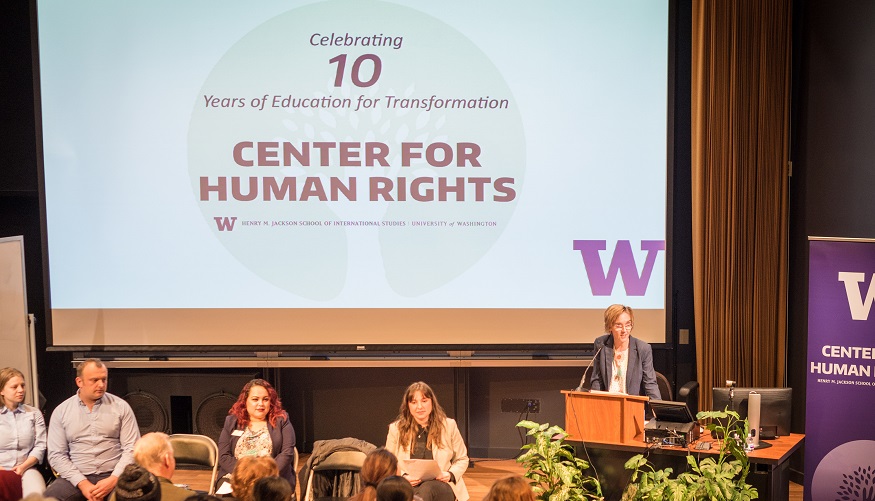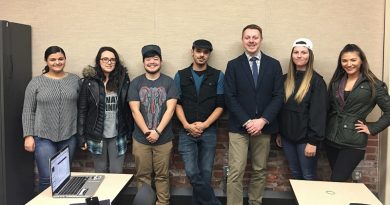Unequal Justice discussion focuses on immigration rights, detention and advocacy
Unequal Justice: Immigration Rights, Detention and Advocacy in Pierce County was hosted at in the Carwein Auditorium on Jan. 30, from 6–7 p.m., Six panelists spoke throughout the event, discussing detention centers practices, the renovation of policies regarding immigration enforcement activities and shared personal stories of their experience as ICE detainees. Chancellor Mark Pagano also joined and welcomed attendees at the event.
Angelina Snodgrass Godoy — director and founder of the UW Center for Human Rights and associate professor of Law, Societies, and Justice, began with the mission the center for Human Rights has.
“Our mission is to carry out hands-on research to faculty and students collaborating together, but in particular collaboration with organizations on the front lines of human rights advocacy,” said Godoy.
At the event, each of the panelists took turns speaking. Ann Benson, a senior directing attorney at the Washington Defender Association, spoke first. Benson focused on the contrasts of the past Barack Obama administration, and President Donald Trump’s current administration, citing the Deferred Action for Parents of Americans and Lawful Permanent Residents as an example.
“[DAPA] was for undocumented people who had U.S. citizen or permanent resident children,” Godoy said. “This [would have] extended the DACA protection to about 6 million people.”
Trump’s administration enforcement priorities have differed from Obama’s, with increased ICE Border Agents, who have the ability to issue deportation orders that have resulted in a rise of Detention Center contracts.
A report by the Fiscal Policy Institute shows an estimate of about 24 million people with 9 million children under the age of 18 have been affected by the Trump administration enforcement policies.
Steffany Duran, another panelist and a UW psychology graduate, shared what she does in the advocacy department at Tacoma Community House, which includes programs like housing and immigration support. All of the House advocates also speak more than one language due to the language barriers with some clients.
“We focus on providing [for] people who have been victims of crime such as domestic violence, sexual assault, human trafficking and other crimes,” said Duran.
Duran highlighted that there are thousands of immigrants and refugees currently detained in the Northwest detention center who don’t have access to resources or family near who can support them.
The final panelists that spoke were Dimitry and Maria, a married couple from Ukraine and Russia. Upon arrival to the United States last year, they were immediately detained.
Dimitry explained the hardships he faced throughout his journey, which eventually led him and Maria, who was then pregnant, to apply for asylum in the U.S. Once they were refused asylum, the couple was led to deportation.

While Dimitry was transferred to San Luis Arizona and then to the Northwest detention center following deportation, he was unaware of Maria’s location — Otay Mesa detention center in San Diego.
“I wrote multiple requests to ICE [saying] ‘where is my wife?’” Dimitry said. “And they never answered.” he said.
Maria was also frustrated with ICE officers and their attitude towards detainees, such as when she met with her own ICE officer on the first day of her release from the detention center.
“ICE treats people like [in a] inhumane degraded attitude,” Dimitry said. “They just don’t listen, they don’t care.”
Amid the mistreatment of detention centers and ICE,, there are community based organizations willing to help, including Advocates for Immigrants in Detention Northwest.
According to their website, the organization are “waiting to welcome released immigrants,” They also have an RV outside the Northwest Detention Center, which offers backpacks full of snacks, toiletries, clothes as well as free phone calls, arranged transportation and housing.
“It restores a lot of the humanity that is often lost in the detention centers,” said Rachel Hershberg, UWT assistant professor in the Social, Behavioral, and Human Sciences.






